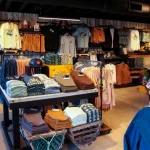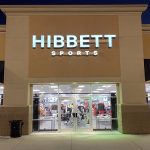In May of last year, Confluence Watersports completed a deal that once again changed the face of the paddlesports imarket, acquiring the paddlesports division of their largest competitor, Watermark.
At the time, Jim Clark was president and CEO of Watermark, a conglomeration of brands that included big boat brands like Perception and Dagger; the roof rack brand, Yakima; over 200 employees; and offices in Arcata, Calif. and Easley, S.C. In addition to the massive restructuring surrounding the acquisition, Watermark was already in the process of moving its headquarters from Arcata, the town where the Yakima brand was built, to Portland, Ore. Watermark received heavy criticism in the media and throughout the industry as a result of that decision and the lay-offs involved.
When the dust surrounding the acquisition and the move settled, Mr. Clark was left with a team of 44 in a new city and one major brand, Yakima.
In the ten months since these events took place, Yakima has restructured itself, reconnected its business processes, and hired over 60 new employees. The company is operating in a sector of the market that is highly competitive, with other well-financed and business savvy brands ready to grab any market share that is available. For the year-to-date, Yakima still retains a 34% market share, according to SportScanINFO data.
The B.O.S.S. Report was able to catch up with Mr. Clark for an update on the recreation car rack business and the restructuring progress at his new company. While he concedes that there was some disruption internally during this transition period, he is very confident about the future prospects for the brand. “For the first time, we are 100% focused on the Yakima business and the brand,” he said. “Years ago Don Banducci said, We dont want customers, we want fans, and the same is true today.”
Clark said that the restructuring process started with a refinement of the vision for the brand and that moved to the creation of a new design aesthetic for the product. “Weve been able to apply a strong new team to a focused effort on the Yakima brand. We see Yakima as the brand that seamlessly connects people to their outdoor passions,” Clark said.
“People, especially Americans, are passionate about their cars, so we wanted to make something that actually made the car look good. In addition, neither we nor the competition gave consumers any reason to trade-up and buy new. This new design concept we are rolling out throughout the entire line should do that.”
The new vision and corresponding design aesthetic have kept Yakima engineers and designers very busy over the last ten months, and Clark has genuinely enjoyed these aspects of the transition. However, this is not to say that the move to Portland and down-sizing of the company did not have its challenges.
“Along the way many people did not understand what we were trying to do, so we took our lumps. Theres really no other way to put it. While it was difficult, and in many ways very painful, we are in a great place now,” he said. “Of course, there are always things where you look back and realize you should have done them differently, but we also got a lot of things right the location, the team, the product, the brand. However, I think we faced some challenges in communication and the people side is always difficult.”
Looking forward, Mr. Clark sees a profound shift in the nature of the car rack business.
For the last several years, the top of car business was seeing relatively low growth rates as SUVs gained popularity and the roof became harder to access. Replacing the roof rack was the hitch rack, which showed very high growth rates until recently. Clark sees this trend reversing itself as gas prices increase and stay high. Increases in smaller car sales lead to increases in top of car racks and higher ticket cargo boxes. Because of this trend, Yakimas design team focused on re-creating the top of car product first. Clark claims this is “driving differentiation between our products and the competition, and at the same time giving people a reason to buy new.”
The company is pairing its new aesthetic with “premium customer service” and some new merchandising initiatives. The companys new Ground Control modular organization products have been morphed into a new merchandising fixture, which Yakima is shipping out to retailers. It provides space to display racks, boxes, and even back-stock. The company is also partnering with retailers like Sport Chalet to create installation centers.
Yakima tested a program called the “Yakima Road Warrior,” last year, which involved a partnership with Subaru. It was so well-received by retailers that the company has decided to triple the size of the program this year. The company will have several fully-outfitted Subaru Tribecas crossing the country to support retail events. Finally, on the direct marketing front, Yakima re-launched its website with a new vehicle configurator, and a “Go-Mighty” section which continues with Yakimas viral marketing internet video commercial campaign started last year.
After hitting a few stumbling blocks and some heavy criticism from the industry, Clark feels that the brand is well-positioned to take the next step and open a new chapter of the companys evolution in Portland.














